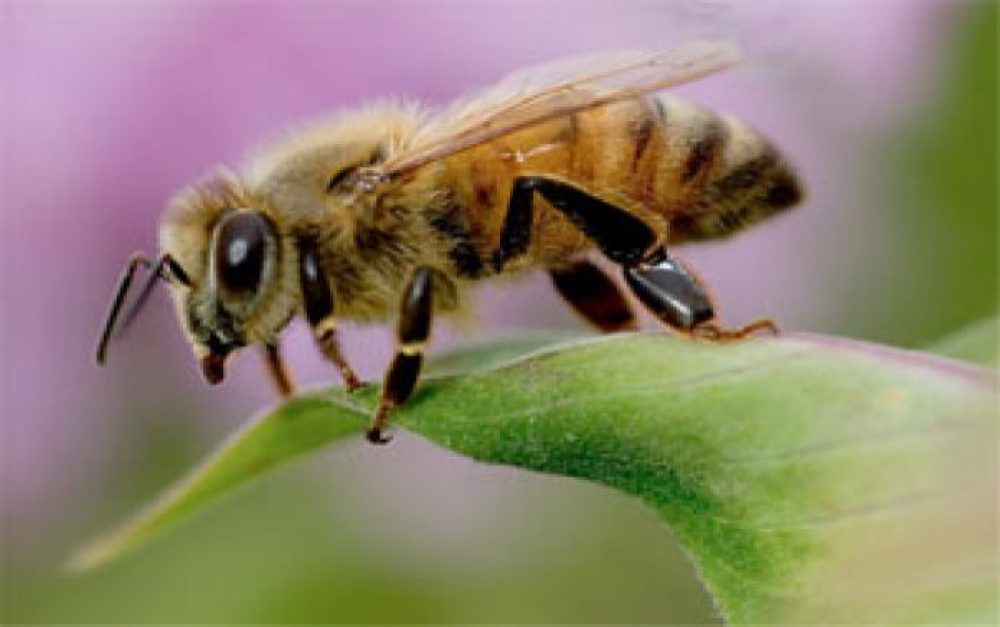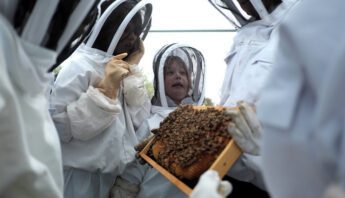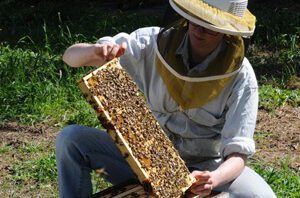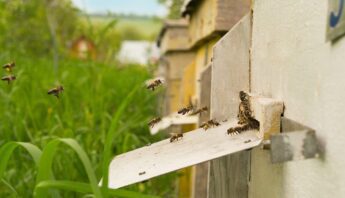With little fanfare, pesticide manufacturer Bayer has asked California regulators to limit the use of one of their most profitable products, imidacloprid.
Rather than undergo the public scrutiny and cost involved in a state-mandated re-evaluation of the pesticide's impact on bees, emerging reports say the company has requested imidacloprid be restricted from use on almond crops, which honey bees are trucked in from around the country to pollinate each February.
Imidacloprid belongs to a class of systemic, neurotoxic pesticides known to be particularly toxic to honey bees: neonicotinoids. As systemics, they permeate the plant from the roots up and are expressed in pollen, nectar and guttation droplets (like pesticide dew).
Bad for bees, bad for almonds
New research suggests that even in very small doses, neonicotinoids create big problems for bees. Imidacloprid likely weakens their immune systems and, in combination with other threats like parasites, contributes to the alarming decline in bee populations termed "Colony Collapse Disorder."
Almond orchards are almost totally reliant on commercial beekeepers
Healthy bees, and the crops they pollinate, are critical for California business. The state produces 80% of the world's almonds, and the orchards are almost totally reliant on commercial beekeepers operating inside and outside the state.
Small and large businesses alike — beekeepers, almond growers and almond processors — benefit when the use of systemic pesticides is reduced.
Two problems: Residues permeate plants & accumulate over time
Bayer's call to halt imidacloprid's use on almonds was prompted by concern from California's Department of Pesticide Regulation (DPR). In 2009, the agency observed two serious problems with Bayer's product:
- high levels of imidacloprid are found in leaves and blossoms of treated plants; and
- residue levels on plants increase over time (accumulation from previous applications).
As a result of these findings, the state agency launched an extensive review of imidacloprid and its counterparts.
Bayer, and other manufacturers, have largely complied with agency requests for more research. But when it came time to review the impacts of their most profitable pesticides on almonds and bees, the company asked for a withdrawl rather than move forward.
As an anonymous insider reports:
“With respect to the voluntary withdrawal for almonds, Bayer decided that it would be better to withdraw this use than to conduct the residue studies.”
Through a recent public records request, PAN obtained evidence of Bayer’s request to remove the product in 2010. The EPA has little experience with voluntary withdrawl of a pesticide, so the agency has been slow to fulfill Bayer's request. But it's likely that a victory for bees — along with almond growers and beekeepers — is imminent.







